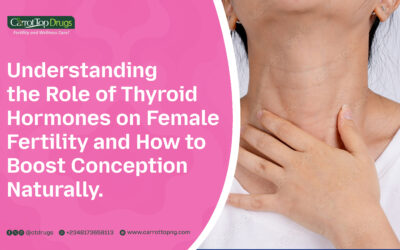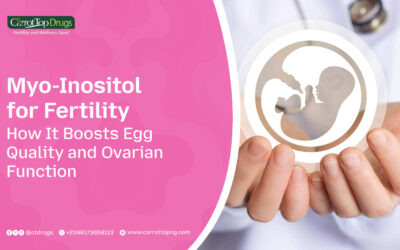Introduction
Breast milk is the natural first food for babies, and over the past decade, the World Health Organization (WHO) has advocated for exclusive breastfeeding for the first six months of a baby’s life. This means feeding the baby only breast milk without any additional food or liquids. After six months, mothers are encouraged to continue breastfeeding while introducing appropriate complementary foods until the child reaches two years or beyond. In this article, we would highlight the health benefits of breastfeeding for both babies and mothers.
Components of Breast Milk
Breast milk contains a wide range of essential nutrients that support a baby’s growth and development. These include:
- Proteins:
Whey and casein: Easily digestible and help in building tissues.
Lactoferrin: Helps absorb iron and protects against infections.
- Fats:
Essential fatty acids: Including DHA (docosahexaenoic acid) and ARA (arachidonic acid) for brain and eye development.
Cholesterol: Important for brain development.
- Carbohydrates:
Lactose: The main carbohydrate in breast milk, providing energy and aiding in calcium absorption.
- Vitamins:
A: Supports vision and immune function.
D: Essential for bone health and calcium absorption.
E: Acts as an antioxidant and supports skin and eye health.
K: Important for blood clotting.
- Minerals:
Calcium: Supports the development of bones and teeth.
Iron: Helps in oxygen transport and preventing anemia.
Magnesium: Supports muscle and nerve function.
- Antibodies:
Immunoglobulin A (IgA): Protects against infections by coating the baby’s digestive tract.
- Enzymes and Hormones:
Lipase: Helps digest fats.
Growth factors: Support overall development and immune health.
- Water:
Breast milk is about 87% water, keeping the baby hydrated.
These nutrients are perfectly balanced to meet the specific needs of infants at different stages of growth.
1. Provides Appropriate Nutrition to the Child
One of the primary health benefits of breastfeeding is that it offers optimal nutrition for a child’s early development. Breast milk is designed specifically for a baby’s digestive system, containing the perfect balance of proteins, fats, vitamins, and minerals. The unique aspect of breast milk is its ability to adapt as the baby grows, meeting the changing nutritional needs of the child. Unlike formula, which remains constant, breast milk evolves to provide the right nutrients at every stage of growth, supporting brain development, the immune system, and other vital functions.
2. Easy to Digest
Another essential health benefit of breastfeeding is that it is easy for babies to digest. Breast milk is designed by nature to be readily absorbed by the infant’s immature digestive system, reducing the risk of gastrointestinal issues like constipation, diarrhea, and indigestion. Babies who are breastfed typically have fewer instances of stomach upset compared to formula-fed babies. This is because the nutrients in breast milk are perfectly balanced and naturally suited to a newborn’s needs, providing a smooth digestive process.
3. Protects Against Allergies and Eczema
The health benefits of breastfeeding extend to reducing the risk of allergies and skin problems in babies. Research has shown that breastfeeding can help lower the chances of a child developing conditions such as eczema, asthma, and food allergies. The proteins in breast milk are less likely to trigger allergic reactions compared to formula, which contains proteins from cow’s milk or soy. This natural protection from breast milk ensures that the baby’s immune system is less likely to react adversely to common allergens.
4. Protects from Infections
One of the most significant health benefits of breastfeeding is its ability to boost a baby’s immune system and protect them from infections. Breast milk is rich in antibodies, particularly immunoglobulin A (IgA), which coats the baby’s mucous membranes and protects against bacteria and viruses. Babies who are breastfed have a reduced risk of respiratory infections, ear infections, and gastrointestinal issues. This immune-boosting effect lasts even after breastfeeding stops, giving babies a better chance at avoiding illness as they grow.
5. Prevents Sudden Infant Death Syndrome (SIDS)
Another critical health benefit of breastfeeding is its role in reducing the risk of Sudden Infant Death Syndrome (SIDS). Studies have consistently shown that breastfed infants are less likely to die from SIDS than those who are formula-fed. The exact reason for this protection is not fully understood, but it is believed that the immune-boosting properties of breast milk, combined with the close physical bond created during breastfeeding, contribute to this lower risk.
6. Builds Brain Power
Breastfeeding has been linked to cognitive benefits and increased intelligence. One of the health benefits of breastfeeding is its positive effect on brain development. Breastfed babies tend to have higher IQ scores and better cognitive function later in life. This could be due to the presence of fatty acids like DHA (docosahexaenoic acid) in breast milk, which are crucial for brain development. Adequate breastfeeding may lead to better learning abilities and reduce the risk of learning disabilities in the future.
7. Improves Mother-Child Bonding
The health benefits of breastfeeding are not limited to physical health; they also extend to emotional well-being. Breastfeeding promotes a strong bond between mother and child through physical closeness, skin-to-skin contact, and eye contact. This bonding time helps the baby feel secure and loved, while the mother experiences the release of oxytocin, the “love hormone,” which further enhances the emotional connection between the two. This nurturing interaction contributes to the baby’s emotional and psychological development.
Conclusion
Breastfeeding offers numerous advantages for both the baby and the mother, making it an essential part of early childhood development. The health benefits of breastfeeding include optimal nutrition, easier digestion, and protection from infections, allergies, and even sudden infant death syndrome. Additionally, breastfeeding fosters cognitive development and strengthens the bond between mother and child. For mothers, continuing with a good nutritional regimen like EVERGREEN NATAL CARE PLUS, which contains essential vitamins, folate, and Omega-3, ensures both the mother and the baby stay healthy throughout the breastfeeding journey.
FAQs
1. How long should I breastfeed my baby?
The World Health Organization (WHO) recommends exclusive breastfeeding for the first six months of life. After that, breastfeeding should continue alongside appropriate complementary foods for up to two years or beyond.
2. What are the most important health benefits of breastfeeding?
The health benefits of breastfeeding include providing optimal nutrition, boosting the baby’s immune system, protecting against infections, promoting brain development, and fostering a strong emotional bond between mother and baby.
3. Is breast milk better than formula?
Yes, breast milk is superior to formula because it is tailored to meet the baby’s nutritional needs, is easy to digest, and contains antibodies that protect against infections. Breast milk also adapts as the baby grows, while formula remains constant.
4. Can breastfeeding prevent allergies?
Yes, one of the health benefits of breastfeeding is that it can reduce the risk of allergies and skin conditions like eczema. Breast milk contains proteins that are less likely to cause allergic reactions compared to formula.
5. Does breastfeeding help prevent Sudden Infant Death Syndrome (SIDS)?
Yes, breastfeeding has been linked to a lower risk of SIDS. The protective properties of breast milk, along with the closeness and bonding during breastfeeding, may contribute to this reduced risk.
6. Does breastfeeding help with brain development?
Yes, breastfeeding supports cognitive development and may lead to higher IQ scores later in childhood. Breast milk contains essential fatty acids, such as DHA, which are crucial for brain and nervous system development.
7. How does breastfeeding benefit mothers?
Breastfeeding helps mothers recover faster after childbirth, reduces the risk of certain cancers (such as breast and ovarian cancer), and promotes a strong emotional bond with the baby. It also aids in natural weight loss by burning extra calories.
8. Can I take supplements while breastfeeding?
Yes, but it’s essential to consult with a healthcare provider before taking any supplements while breastfeeding. Some supplements, such as those with folate and Omega-3, can support both the mother’s and the baby’s health.

















